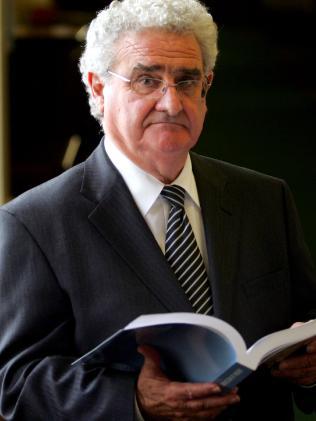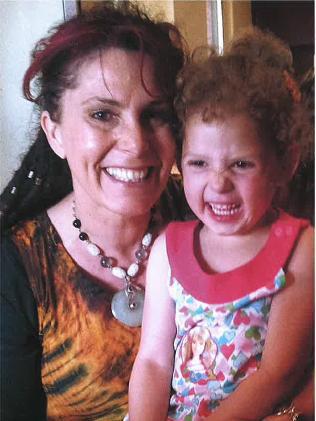|
SA’s disturbing history of child protection and abuse inquiries and royal commissions
The Advertiser
[with video] THE release of the Nyland Royal Commission on Monday is the latest in a series of reports into the state’s child protection system. Over the past 10 years there has been a litany of inquiries into the Government’s failure to protect children, including three high-profile inquiries also led by former Supreme Court justices. They repeatedly found a culture of secrecy, unwieldy bureaucracy, lack of resources and a failure to put children first. As South Australians begin to digest the 260 recommendations made by Margaret Nyland, the Government faces continued criticism for not having implemented the hundreds of proposals already put forward. Advocates and victims are already warning this latest blueprint for change must not “sit on the shelf”. The Layton Report — March 2003THE 400-page Child Protection Review by prominent QC Robyn Layton was handed down in March 2003 after a nine-month investigation. The report contained 206 recommendations and formed the backbone of the State Government’s Keeping Them Safe child protection reforms that began with the creation of the Department of Families and Communities in July 2004. The review was announced by then Premier Mike Rann in December 2002 following allegations relating to sexual abuse of schoolchildren and complaints about the treatment of children at the Woomera Detention Centre. The review found that the state’s criminal justice system was failing children and that Government child protection services were struggling to cope with demand. Key recommendations included: APPOINTING a commissioner for children and young people and a guardian for children (a recommendation which still has not been implemented). ESTABLISHING a panel to investigate child deaths and serious injury, and a child protection board. SETTING up a treatment program for child-sex offenders within the prison system. It took the Government more than a year to respond to the report and some recommendations were ignored. Before the Government released its response in mid-2004, a report revealed the state was failing to investigate serious complaints of physical and sexual abuse. At the time, then Families Minister (now Premier) Jay Weatherill conceded the Government and previous governments had failed children at risk and admitted the need for extra funds and a major restructure of what was then Family and Youth Services. On releasing the Government’s response to the Layton report, Mr Weatherill said there was a need for a fundamental culture change and a new sense of direction within the department. Mullighan Inquiry — April 2008RETIRED Supreme Court Justice Ted Mullighan, QC, was given the responsibility to inquire into any allegation of sexual abuse of a person in state care whether or not any allegation was previously made or reported in 2004. Former Premier Mike Rann announced the inquiry on June 30, 2004, following more than a year of pressure from the Opposition and calls from abuse victims for a royal commission. The inquiry, officially called the Commission of Inquiry Report — Children in State Care, took more than three years and was run alongside another inquiry by Commissioner Mullighan into children on the APY lands, which was established in June 2007. The inquiry into children in state care culminated in a 600-page report containing 54 recommendations, made public in April 2008, that detailed the horrific extent of sex abuse perpetrated against children over four decades. On its release Commissioner Mullighan issued a stark warning that children in state care would remain vulnerable to sex abuse unless urgent action was taken to overhaul a system in crisis. The Government released its response in June 2008 along with a $190 million reform package. A progress report on implementing the 54 recommendations, handed down in November 2013, showed it still has not implemented its response to five recommendations. One of the recommendations the Government was slow to enact was that criminal history checks be extended to include local government or non-government organisations that provide health, welfare, education, sporting or recreational, religious or spiritual, child care or residential services wholly or partly for children. That recommendation was only finalised at the end of 2013. Parliamentary Select Committee on Families SA — November 2009OVER two years, the Select Committee received 92 written secret submissions and heard evidence from 38 witnesses, including department whistleblowers. The Committee’s report revealed a catalogue of failures, evidence of some officers engaging in cover-ups and concluded the agency was in “crisis”. Scores of staff, it said, were severely inexperienced and underpaid, yet had poor professional supervision and a lack of accountability. Case workers, meanwhile, were bullied by supervisors and many officers behaved in an “unprofessional, biased and vindictive manner” and permitted to hide from recrimination. The inquiry also found the agency had a ‘rotten” culture of power, a lack of accountability, supervision and nepotism. “It fails in its attempts to prevent or intervene in the lives of vulnerable families,” it found. Up to six notifications were needed before a case manager was assigned while carers were deserting the system, fed up with being “ignored’’. Child protection campaigners and Opposition MPs claimed the Government ignored most of the inquiry’s 16 recommendations — “most glaringly” calls to establish independent competency assessments of staff and an audit of worker qualifications. They said reforms of foster carer practices had also failed to materialise, including the creation of an “independent professional” panel for complaints. The Government rejected six findings and voiced concerns over its “serious shortcomings”, while some experts questioned the inquiry’s value because of the lack of official input. Ian Hunter, the minister for communities and social inclusion at the time, argued it was not in ‘anyone’s best interests’’ for an inquiry that would reveal ‘extremely sensitive matters’’. He said staff were “the most scrutinised public servants in this state ... (and) we think they should be’’, and the Government believed it would not “improve outcomes for children”. “All this select committee will do is drag the private lives and travails of children and their families through the media,’’ he told Parliament. Debelle Inquiry — July 2013THE independent Education Inquiry was launched after it was revealed in State Parliament, in November 2012, that parents at a western suburbs school were kept in the dark for two years that out-of-school-hours-care worker Mark Christopher Harvey had been arrested, and later found guilty, of the rape of a girl, 7, in his care at the school. Parents were outraged they had not been told at the time about the incident, hampering them from asking their children if they had been abused. It later came to light that Harvey had abused other children from the school. The inquiry was headed by former Supreme Court Justice Bruce Debelle and within a month was made a Royal Commission. On July 1, 2013, Mr Debelle handed down a 280-page report which the Education Department chief executive at the time, Keith Bartley, labelled a “sobering chronicle of failures at every level within the department’’. Mr Debelle’s report showed the state’s Education Department was so inwardly focused that it had lost sight that its primary responsibility is to serve the children and parents of South Australia. It revealed the department failed, on multiple levels, to adequately deal with a string of disturbing sexual abuse cases within state schools and was struggling to deal with layers of bureaucracy, a chaotic organisational structure and widespread communication problems. Premier Jay Weatherill accepted, in principle, all 43 of Mr Debelle’s recommendations. Forty have been implemented with the remaining three held up until the court proceedings against Harvey have been finalised. It also led to then Education Minister Jennifer Rankine having former Victorian education chief Peter Allen review the department’s structure. Coronial Inquest into the death of Chloe Valentine — April 2015State Coroner Mark Johns held an inquiry into the 2012 death of four-year-old Chloe Valentine, who had been the subject of more than 20 reports to Families SA. Mr Johns made 21 recommendations stemming from Chloe’s death from injuries she suffered while being forced to ride a motorbike by her mother, Ashlee Polkinghorne, and her mother’s then partner, Ben McPartland. They included: SEIZING the babies of killer parents at birth. PLACING children at risk in the permanent care of adoptive families. EXPANDING the reach and use of income management for at-risk families in SA. DRUG testing more parents. MPs passed legislation enacting a number of the recommendations in April — a year after the findings were handed down. In his report, Mr Johns savaged the child safety department’s policies, practices and culture, finding it was plagued by systemic failure and inadequacy. He criticised the department’s then chief executive, Tony Harrison, for turning his back on his SA Police background and allowing himself to be influenced by an attitude of “drift and aimlessness”. He said workers failed to take drug-using parents to the Youth Court, as the law demanded, and that Mr Harrison had deemed any change to that behaviour impractical. Mr Johns said agencies had “no excuse” for ignoring their “most basic obligations”, and that Chloe may very well be alive today if they had. He said Families SA could have applied existing legal and policy tools to force a change in the poor parenting of Chloe’s drug-using teenage mother but did not.
|
.
Any original material on these pages is copyright © BishopAccountability.org 2004. Reproduce freely with attribution.

